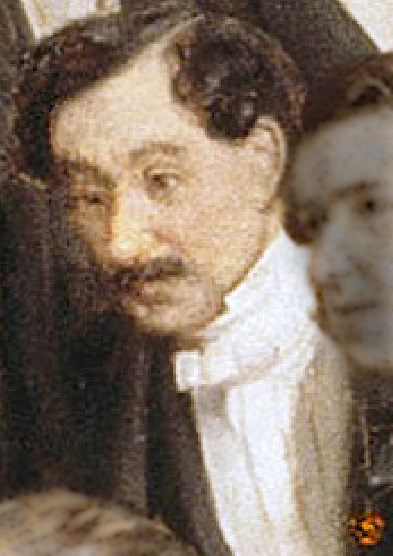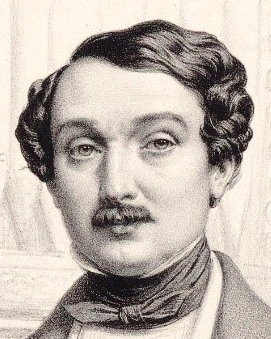Pierre-Auguste (Alexis) Dupont (1796–1874), Opera singer
1st image: Soirée; 2nd: engraving by Alophe (1840). (Alternative: Duprez)
Although mentioned in a recently discovered press article, I have strong doubts about the presence of Dupont at de Nieuwerkerke’s vendredi-soirées.
Alexis Dupont possessed a vocal range that spanned both the tenor and baritone registers. He performed at the Opéra-Comique from 1821 to 1823 and at the Paris Opera from 1826 to 1841.
From 1843 onward, he dedicated himself to sacred (religious) music, joining the Saint-Roch parish. He sang Rossini’s Stabat Mater alongside Pauline Viardot, a close friend of Chopin.
Dupont also performed Mozart’s Requiem at Frédéric Chopin’s funeral in October 1849.
He owned a house on a large estate near the Bois de Boulogne, where he lived with his wife, former ballerina Félicité Noblet, and their children. In summer 1856, he was arrested for sex offenses with underage girls in the Bois de Boulogne, which was widely reported in the press. Tribunal records state that offenses had already started in 1849, with a girl aged “seven or eight” at the time. Dupont reinitiated the relationship with her when she was fourteen, as well as with another underaged girl. He was helped by a prostitute with whom he had an affair. A violent man, referred to by the court as "Satan”, forced the girls to cooperate with Dupont’s desires.
It is realistic to assume that Dupont’s behavior was known to some in the musical world in the early 1850s. It may be the reason he never received a Legion d'Honneur title, and that Pasdeloup12, in charge of the performances at the vendredi-soirées, was not keen to select him. I discovered one article from early 1854, however, where Viel-Castel referred to a "Dupond" in a long list of singers. Even if Dupont did perform at one of de Nieuwerkerke's events, the presence of a red boutonnière of the Chevalier title on the lapel of the depicted person tells us that this cannot be Dupont.
Horace de Viel-Castel43 also mentions Dupont’s debauchery in his diary. Dupont was sentenced to fifteen months imprisonment; his accomplices from six to twelve months. According to Le Figaro, Dupont sang at the mess in the prison chapel in November that year. Dupont’s clerical contacts found ways to reduce his prison time, after which he disappeared into obscurity. Upon his death from paralysis in 1874, one newspaper mentioned: “he will not be missed.”

